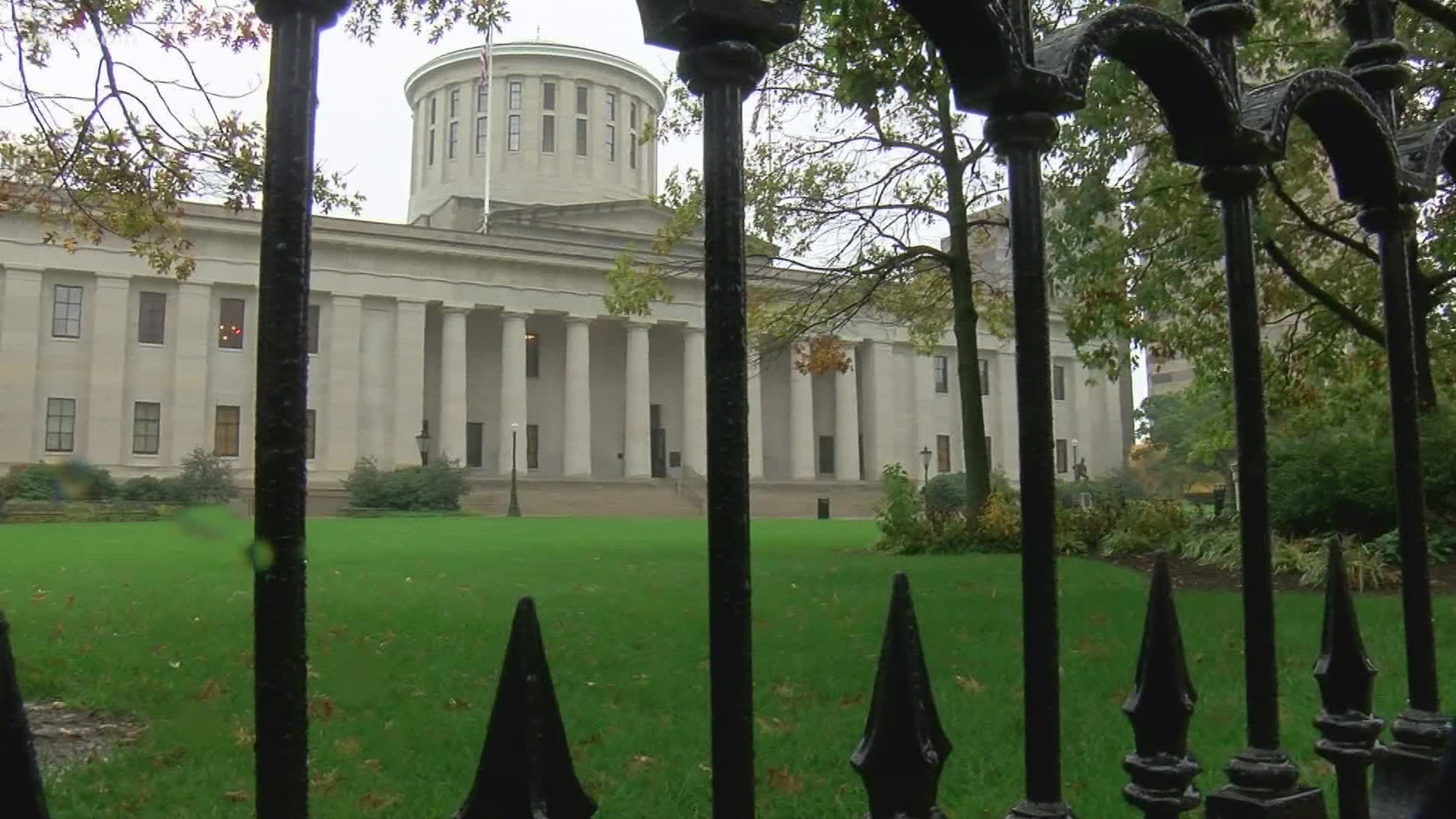COLUMBUS, Ohio — If you live in Perrysburg, but work in Toledo, the city of Toledo charges you an income tax since you have to drive on city streets and are protected by Toledo police and firefighters.
But, like so many things, COVID-19 changed that.
Suddenly, thousands of employees were working from home, still paying those income taxes, but never getting what they were paying for since they never actually went to their workplaces.
"We're seeing a transition of where people work. Obviously, we're seeing a lot of people working from home and that's a new phenomenon," says Rep. Derek Merrin, R-Monclova.
Before the pandemic, workers who didn't go to the office for at least 20 days, could request a municipality tax refund from the city where their office was located.
However, at the start of the pandemic the legislature passed a provision ending that practice and only allowing tax dollars to go to the city where their company's office is, even if they were working from home in a different city.
Merrin says it was a clerical favor for businesses.
"So they didn't have to switch out someone's withholding and say, 'Well they work in Toledo but now they're going to stay home in Sylvania,' and they were going to have to switch their income tax withholding from Toledo to Sylvania for two or three weeks and then have to switch it right back," he explains.
The provision was written to expire 30 days after the emergency ended. Right now that date is Aug. 23.
Merrin says the provision wasn't intended to last this long so he's co-sponsored House Bill 157 that would shift remote workers' taxes in 2021 to the city where they live instead of where their company has an office. It would not apply to 2020.
"So we really have a few of the major cities really taking advantage of people and saying, 'We're going to tax you even though you don't work here and you don't live here and you can't do that constitutionally,'" says Merrin.
In fact, some remote workers are suing the cities of Toledo and Oregon. Jay Carson of the Buckeye Institute is representing plaintiffs in the lawsuits, which he says are in their early stages.
While Toledo says it won't comment on pending litigation, in a statement about House Bill 157, Communications Director Ignazio Messina says in part, "This proposed change in the law would generally benefit bedroom communities and penalize larger communities like Toledo."
Keary McCarthy of the Ohio Mayors Alliance says the provision was passed at the beginning of the pandemic to provide stability to cities like Toledo. He says if HB 157 passes, allowing remote workers to request refunds for the year 2021, it would threaten the fiscal health of cities across the state and would be a setback for economic recovery.
Messina says, "Toledo, which was recently ranked the number one mid-sized city in America for new business development, and other large cities in Ohio, have adjusted in the past to changes at the state level that negatively impacted operating budgets. The pandemic changed the way employers operate and none of us really know how those changes will last long term, but we will continue to monitor that over the coming months and even years."
"I will be watching with interest," says Sylvania Mayor Craig Stough. Suburbs like his stand to gain from the bill.
Stough says he's seen many a tax bill come up in the legislature over the years. He says this latest effort does have a downside, albeit not devastating to his community.
"We do have a lot of people from Sylvania Township who work in the city limits who pay taxes to the city of Sylvania, so we would lose that. So there's pluses and minuses, but I'm quite sure it would still be a net gain for the city of Sylvania," he says.
While he can walk away ahead if HB 157 passes, Stough doesn't feel it's the fairest way to distribute income taxes. He'd like to return to a tax-reciprocity policy, dumped by Toledo decades ago. He says Sylvania lost about $2 million when that happened.
"Where people work, they collect the taxes there but you send half of it back to where people live. I think that does make sense," says Stough.
Merrin says if his bill passes, it would be worked out when people file their taxes.
"When an individual files their tax return they're going to say I worked 'x' amount of days in the city of Waterville and 'x' amount of days in the city of Toledo. And then you file your tax returns and maybe you deserve a refund from the city of Toledo," he explains.
He expects the bill to pass the House on May 26 with action taken in the Senate before recess at the end of June.

